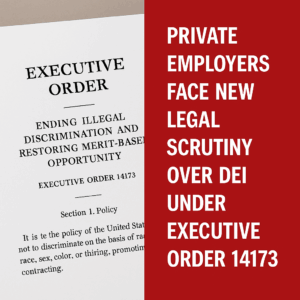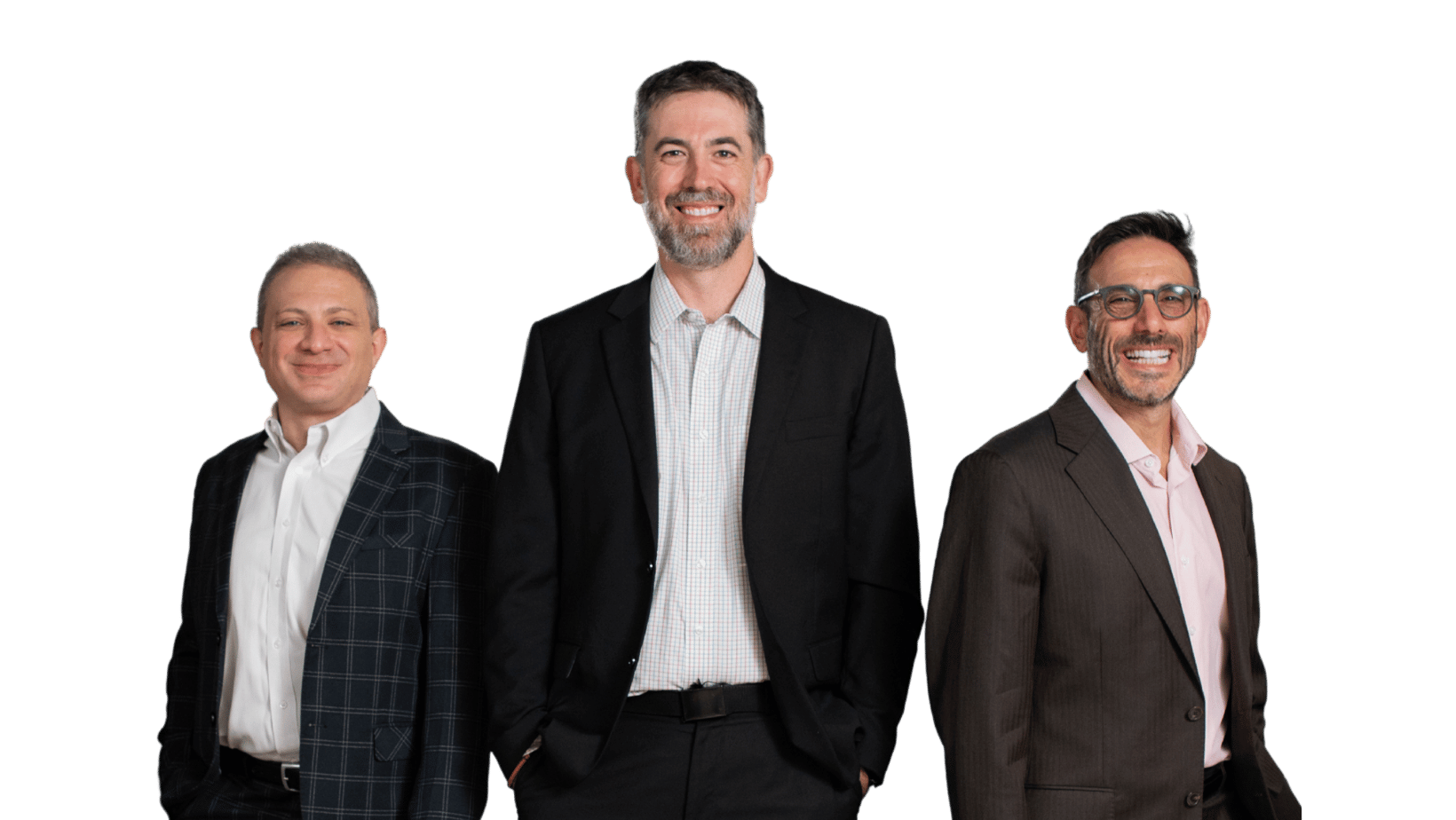May 24, 2025 | Posted By: Emma Doull
 In January 2025, workplace compliance underwent a significant shift with the issuance of Executive Order 14173 by President Donald Trump. Titled “Ending Illegal Discrimination and Restoring Merit-Based Opportunity,” this sweeping action has sparked concern, not just for federal contractors but increasingly for private employers as well. With its broad framing of diversity, equity, and inclusion (“DEI”) programs as potentially discriminatory, the Order signals an intensified federal focus on identity-based employment practices across sectors.
In January 2025, workplace compliance underwent a significant shift with the issuance of Executive Order 14173 by President Donald Trump. Titled “Ending Illegal Discrimination and Restoring Merit-Based Opportunity,” this sweeping action has sparked concern, not just for federal contractors but increasingly for private employers as well. With its broad framing of diversity, equity, and inclusion (“DEI”) programs as potentially discriminatory, the Order signals an intensified federal focus on identity-based employment practices across sectors.
Although EO 14173 directly applies to federal contractors, its reach extends beyond government-funded employers. Private businesses with proactive DEI policies must now contend with growing legal and political scrutiny. This means that even organizations without government contracts are at risk if they use race, sex, or other protected traits as part of hiring, promotion, or internal advancement efforts.
Why Private Employers Should Pay Attention
One of the most consequential developments under EO 14173 is its encouragement of federal agencies, especially the Department of Justice, to investigate private employers suspected of engaging in “preference-based” DEI programs. This opens the door for enforcement actions even where no federal dollars are involved, placing a wider range of companies under the microscope.
Practices once seen as progressive, such as targeting demographic benchmarks, forming identity-specific mentorship programs, or offering affinity-based training, could now be reinterpreted as violations of Title VII or other anti-discrimination laws, depending on their structure and intent.
What Are the Specific Risks?
For private employers, the most common areas of exposure include:
- Hiring materials that include DEI statements referencing demographic goals or commitments.
- Employee resource groups (ERGs) that restrict membership or participation based on race, gender, or sexual orientation.
- Leadership pipelines or training programs limited to underrepresented groups.
- Affirmative outreach or recruiting that prioritizes candidates from specific demographic backgrounds.
Even voluntary programs can be flagged if they appear to influence employment outcomes based on protected characteristics. Legal challenges may arise not only from government enforcement but also from employee lawsuits or third-party watchdog groups.
How Courts Are Responding
Legal uncertainty complicates the picture. In February 2025, a coalition of advocacy groups filed suit to block parts of EO 14173, including its certification requirements and DOJ enforcement mandates. A Maryland federal court issued a preliminary injunction citing First Amendment and due process concerns, but this was later stayed by the Fourth Circuit in March, allowing the EO to proceed while litigation continues.
For now, the Order remains enforceable, and private employers should not assume these challenges will ultimately prevail. Rather, compliance is the safer course.
Best Practices for Private-Sector Compliance
To reduce risk while continuing to foster an inclusive workplace, private employers should consider taking the following steps:
- Audit Existing DEI Initiatives: Review all DEI-related programs, communications, and training materials to identify any that make employment-related distinctions based on race, sex, or other protected traits.
- Reframe DEI Objectives: Shift the language away from identity-based goals and toward broader, neutral outcomes, such as employee engagement, access to opportunities, or skill development. Avoid demographic quotas or targets.
- Ensure ERG Compliance: Keep employee resource groups open to all interested employees, regardless of identity, and focus on shared experiences or common interests rather than exclusivity.
- Apply Merit-Based Criteria Uniformly: Confirm that all employment decisions (e.g., hiring, promotion, and compensation) are based on documented merit factors and job-related qualifications.
- Consult Legal Counsel: A legal review of hiring processes, job postings, and internal DEI policies can help identify hidden vulnerabilities and guide necessary revisions.
DEI Is Evolving, Not Ending
While EO 14173 has chilled some corporate DEI activity, it has not eliminated the business case for inclusive practices. Major employers like JPMorgan Chase and Goldman Sachs are continuing their DEI commitments, focusing on legally defensible structures and aligning efforts with broader ESG principles.
If your organization values an inclusive culture and diverse perspectives, you don’t have to abandon those goals. You just have to pursue them differently, through transparent, legally sound, and universally accessible practices.
How We Can Help
At Hoyer Law Group, we work with private employers to ensure compliance while preserving their core values. Whether you need a DEI risk assessment, help with restructuring mentorship and recruiting programs, or guidance on training materials and ERGs, our team offers practical, legally sound advice to keep your workplace both inclusive and litigation-resistant.
Contact us today to proactively align your DEI efforts with evolving federal standards and avoid costly surprises.

